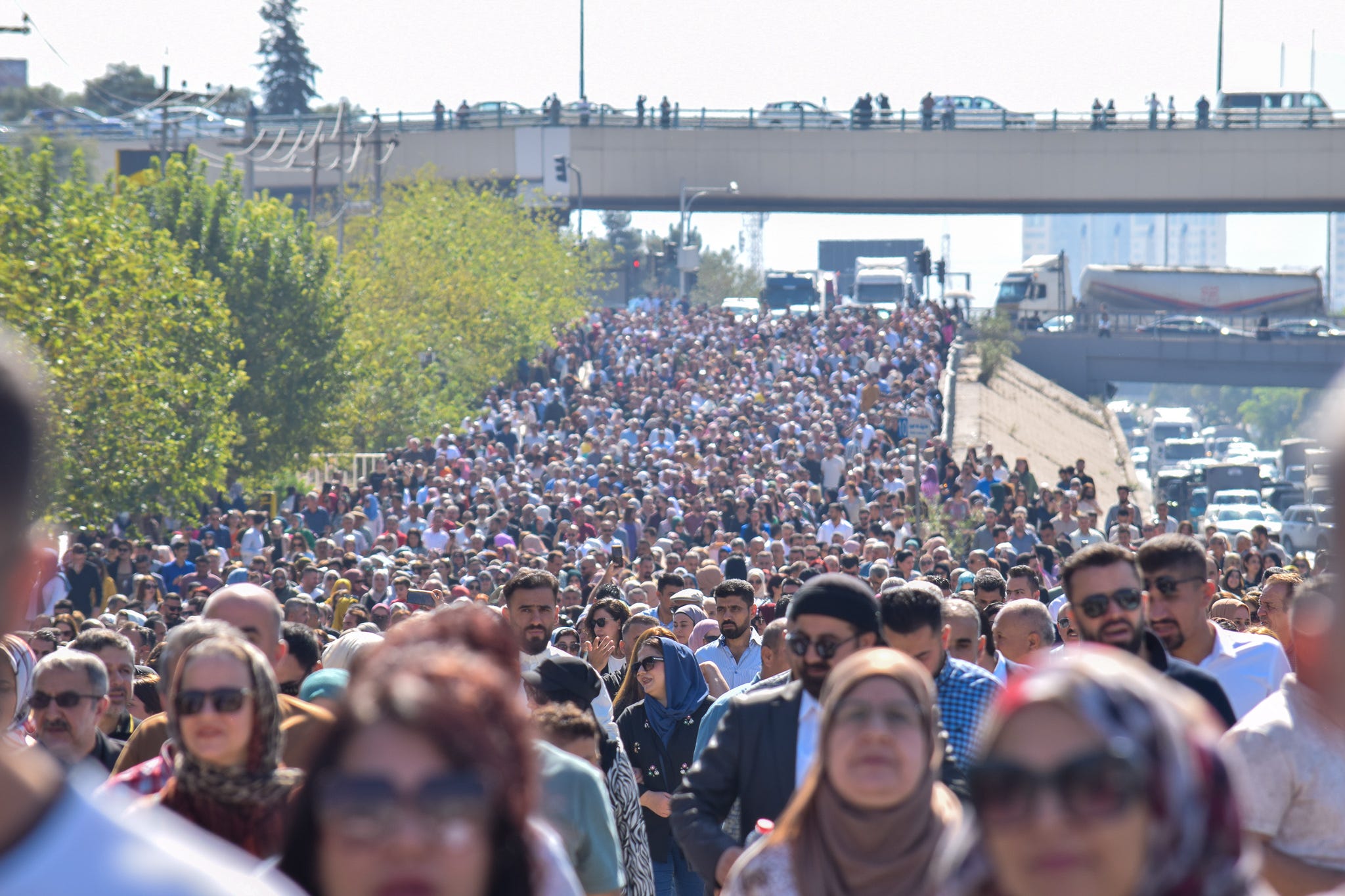|
Hello, everyone.
In a new essay, Katherine Voyles explores the question of temporality in war fiction. These considerations, she explains, help us understand something important about how to make sense of the importance of war.
A new episode of the Things That Go Boom podcast considers a different pressing question: Is there an alternative to the feeling of doom we all endure as the news streamlines a constant flow of catastrophes around the globe? Listen to the full episode here.
Meanwhile, as India presses forward in the world’s largest elections, a weeks-long process, the right-wing government has expanded its crackdown on the press to foreign reporters. The clampdown has heightened fear of retribution among the foreign press corps, as Hanan Zaffar and Jyoti Thakur report.
That’s not all we’ve got at Inkstick. And if you’re not already, please follow us on Twitter, LinkedIn, Threads, Facebook, Instagram, and YouTube.
“The End of the World as We Know It” by Laicie Heeley (May 13)
When news of a new disaster seems to roll in every day, it can feel like there’s little hope. But a new episode of the Things That Go Boom podcast asks what if we had … another option? Not just to reverse course on climate change, but to set the course for a better future.
“As Israel Ramps Up Rafah Attacks, Is Any Safe Place Left in Gaza?” by Mohammed Ali* (May 13)
Recent news that Hamas had accepted a ceasefire agreement brought many Palestinians in Gaza joy and relief — until Israel continued to escalate its attacks on Rafah, the city hugging the Strip’s border with Egypt. With Rafah considered the last refuge, already-displaced Palestinians don’t know where else to go.
“How Should We Make Sense of War in Fiction?” by Katherine Voyles (May 14)
How to tell a war story and who gets to tell a war story are crucially important questions. They are also relatively familiar questions even if the answers to them shift around and are likely to remain unsettled. When to tell a war story is an equally important, and slightly less familiar, question.
“Amid Indian Elections, a Crackdown on Foreign Press” by Hanan Zaffar and Jyoti Thakur (May 14)
Indian PM Narendra Modi’s right-wing Bharatiya Janata Party (BJP) is seeking a consecutive third term against an alliance of more than two dozen opposition parties. During Modi’s 10-year tenure, critics say, the freedom of press and the country’s democratic values have been increasingly compromised.
“What Is the US Military Doing in the Middle East?” by Barbara Slavin, Will Walldorf, & Alexandra Stark (May 15)
In the latest installment of “Adults in a Room,” a series in collaboration with the Stimson Center’s Reimagining US Grand Strategy program, these experts examine the question of what the US military is doing in the Middle East. They consider climbing regional tensions, Israel’s war in Gaza, and an uptick in attacks on US soldiers in the region, among other developments.
“The Teachers Building a New Labor Movement in Iraqi Kurdistan” by Winthrop Rodgers (May 15)
Receiving partial and late payments for months on end, teachers in the Iraqi Kurdistan region recently carried out the longest strike in the KRG’s history. The problem, in part, stems from the region’s deep system of party patronage. Although the strike is now over, the dissenting teachers say they’ll take to the streets again if they have to.
“Deep Dive: Losing Cite in International Relations” by Emily Tamkin (May 16)
Calls for inclusion can end up excluding that which they mean to bring in if they don’t recognize the representation that already exists. A new paper examines the conundrum of calls for globalizing the field of international relations.
“Can the US Get an Edge over China in the Pacific Islands?” by Camilla Pohle (May 16)
White House talking points have emphasized the importance of the Freely Associated States, and the Pacific Islands more broadly, beyond their strategic value. But actions often matter more than words. Unfortunately, the Freely Associated States often perceive that they are a low priority for the United States
“Why Haven’t Sanctions Stopped Atrocities in Myanmar?” by Narayani Sritharan & Timmy Tasler (May 17)
It is apparent that US sanctions were wholly inadequate or the “wrong answer” to the problem of the Rohingya genocide. But why? Where did US sanctions go wrong? Could they ever be part of the right answer?
From the desk of Patrick Strickland, managing editor of Inkstick Media.
Photo: Teachers on strike march in the Iraqi Kurdistan region in October 2023 (Winthrop Rodgers for Inkstick)
Inkstick’s work is free today. But it’s not free to produce. If our content is something that you’ve come to rely on, please consider making a tax-deductible donation today. Even $5 or $10 a month makes a huge difference. Together, we can change the face of foreign policy.
